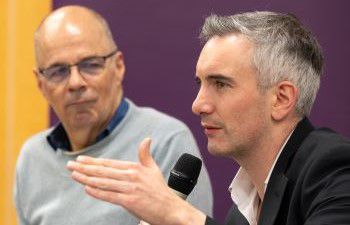Our community engagement work
The School of Law, Politics and Sociology is committed to sharing our collective knowledge, skills and experience with the local community, through mutually beneficial partnerships and activities.
We are continually developing new and innovative ways of engaging with our community. Our clinical legal education programme grows in reach year-on-year; and staff and students participate in the local community through a range of volunteering roles.
If you are from a local organisation and would like to discuss collaborating with us, please email: lps@sussex.ac.uk
News
Events
No items are currently available.

